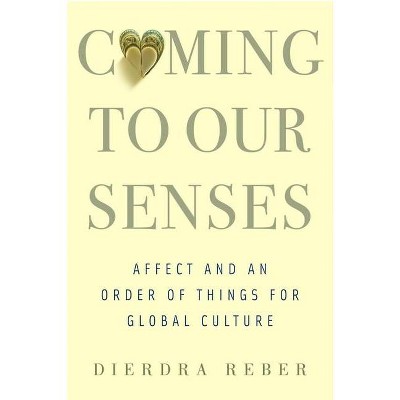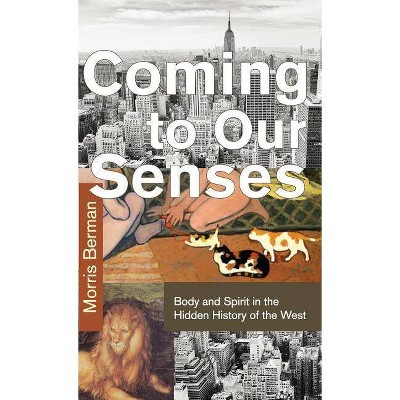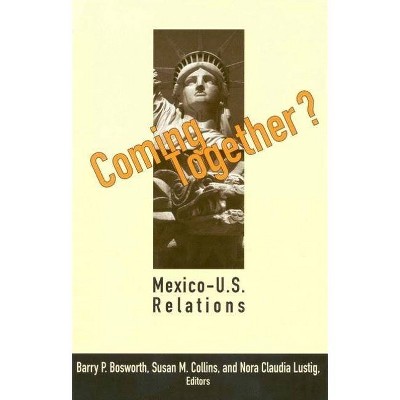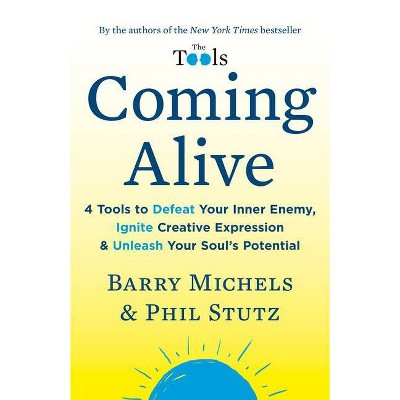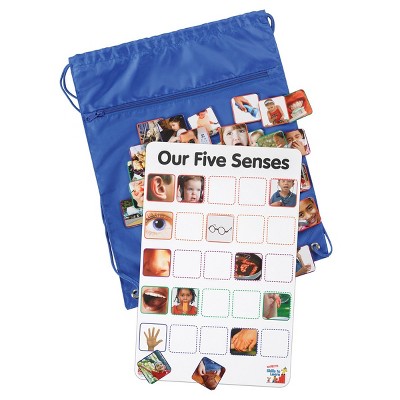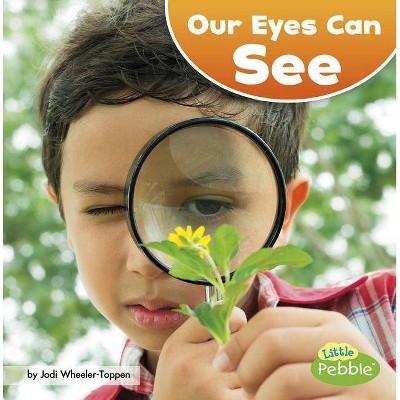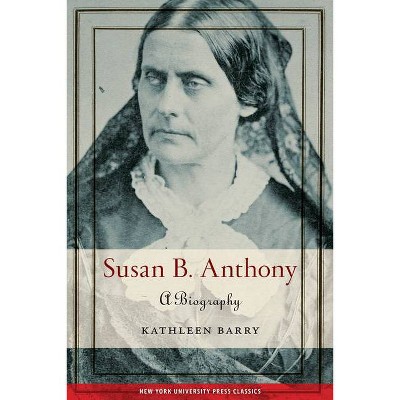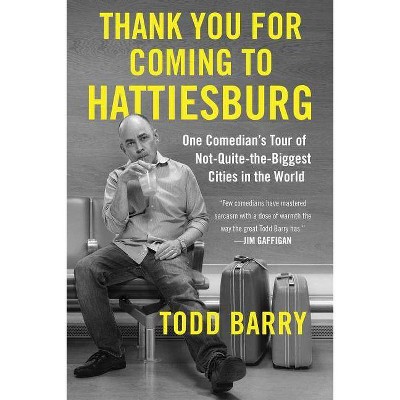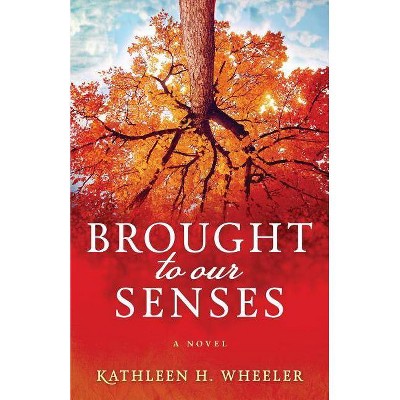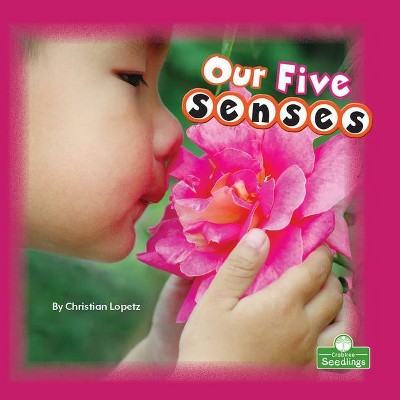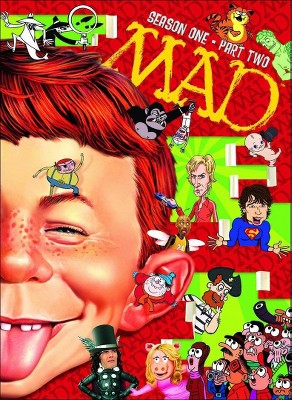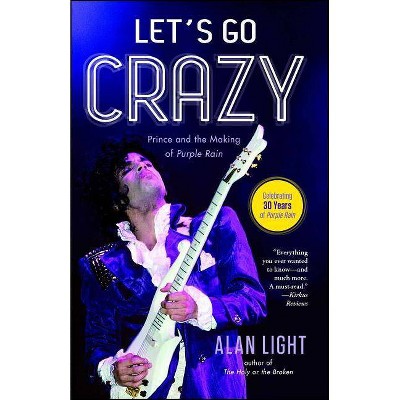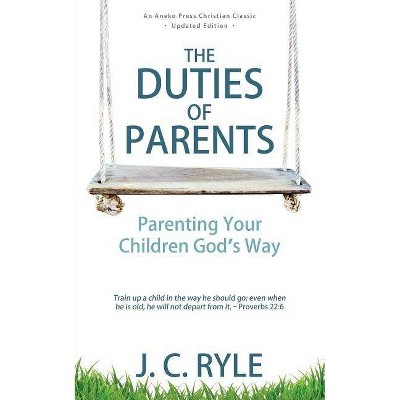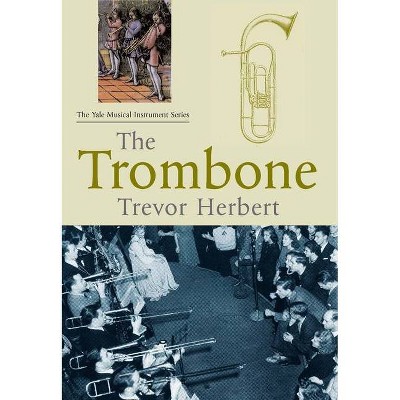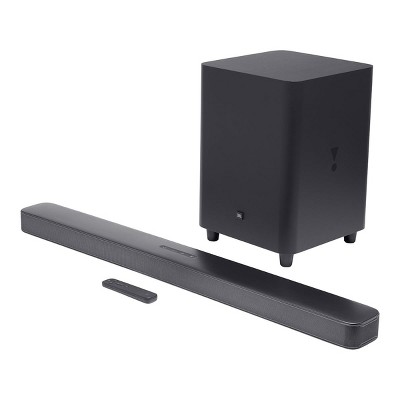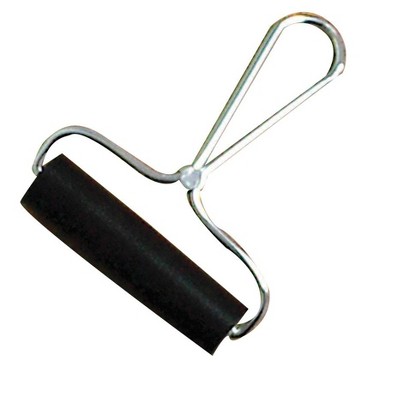Coming to Our Senses - by Susan R Barry (Hardcover)
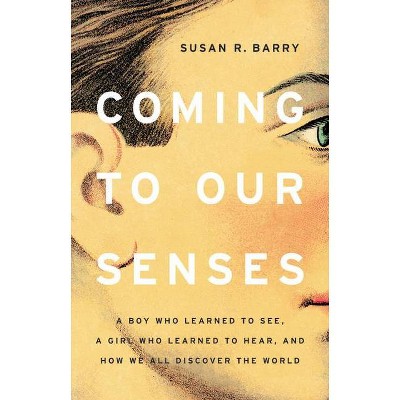
Similar Products
Products of same category from the store
Product info
<p/><br></br><p><b> About the Book </b></p></br></br>"We think of perception as a passive, mechanical process, as if our eyes are cameras and our ears microphones. But as neurobiologist Susan R. Barry argues, perception is a deeply personal act. Our environments, our relationships, and our actions shape and reshape our senses throughout our liveslives. This idea is no more apparent than in the cases of people who gain senses as adults. Barry tells the stories of Liam McCoy, practically blind from birth, and Zohra Damji, born deaf, in the decade following surgeries that restored their senses. As Liam and Zohra learned entirely new ways of being, Barry discovered an entirely new model of the nature of perception. Coming to Our Senses is a celebration of human resilience and a powerful reminder that, before you can really understand other people, you must first recognize that their worlds are fundamentally different from your own. "--Publisher's description.<p/><br></br><p><b> Book Synopsis </b></p></br></br><b>A neurobiologist reexamines the personal nature of perception in this groundbreaking guide to a new model for our senses.</b> <br> We think of perception as a passive, mechanical process, as if our eyes are cameras and our ears microphones. But as neurobiologist Susan R. Barry argues, perception is a deeply personal act. Our environments, our relationships, and our actions shape and reshape our senses throughout our lives. This idea is no more apparent than in the cases of people who gain senses as adults. Barry tells the stories of Liam McCoy, practically blind from birth, and Zohra Damji, born deaf, in the decade following surgeries that restored their senses. As Liam and Zohra learned entirely new ways of being, Barry discovered an entirely new model of the nature of perception.<i> Coming to Our Senses</i> is a celebration of human resilience and a powerful reminder that, before you can really understand other people, you must first recognize that their worlds are fundamentally different from your own.<p/><br></br><p><b> Review Quotes </b></p></br></br><br><p>"<i>Coming to Our Senses</i> is an engaging and illuminating book. Barry's intimate account of people who gained the ability to see and hear as adults offers rich insights into how we shape, and our shaped by, our senses. Along the way Barry teaches us much about vision, hearing and the human capacity to learn and adapt."</p>--<b>Dennis M. Levi, UC Berkeley</b><br><br>"Barry, who spent over a decade getting to know these two incredible people, profiles them with detail and compassion, unraveling their stories through both personal and scientific lenses. The result is a book that reveals the ways in which scientific knowledge is profoundly tied to our understanding of human nature... Fascinating." <br> --<i><b>The Wesleyan Connection</b></i><br><br>"Interweaving McCoy and Damji's accounts with scholarly investigations of how perception works, Barry celebrates her subjects' determination to adapt to their newfound senses."--<i><b>Smithsonian Magazine Online</b></i><br><br>"Coming to Our Senses, by neurobiologist Susan Barry, explains how our actions shape and reshape our senses throughout our lives, delving into this deeply personal developmental process."--<i><b>New Scientist</b></i><br><br>"In telling the detailed stories of how Liam and Zohra learned to navigate the world using their new senses -- stories that in many ways mimic the way able-bodied infants accomplish the same thing -- Barry gives us insight into what it means to be human."--<i><b>New York Times</b></i><br><br>"Neurobiologist Barry explores sight, hearing, and perception in this triumphant survey of people who gained a sense they were born without. Barry skillfully balances scientific explanations with empathetic stories of how senses shape the human experience... This powerful tale is as thoughtful as it is informative."--<i><b>Publisher's Weekly</b></i><br><br>"Through stories of two amazing individuals, a neurobiologist explains how we see and hear...Even science-savvy readers will find surprises in this insightful exploration of how two humans learned a new sense." <p/> --<i><b>Kirkus</b></i><br><br>"While researching the fascinating and inspiring story of a boy and a girl - born blind and deaf, respectively - who learned to see and hear after receiving surgical intervention, Barry, a neurobiologist who herself gained sight in both eyes in midlife, arrived at a new theory about the nature of perception."--<i><b>Toronto Globe & Mail</b></i><br><br>"Absolutely fascinating."--<b>Temple Grandin</b><br><br>"What would happen if you had a new sense grafted on your body? Sue Barry is alert to the many fascinating details of how Liam and Zohra navigated their new sensory experiences, essentially giving the reader a lab course in experimental philosophy. This moving work of biography and scholarship explores the deep questions that arise when people choose to live in bodies that have been made new and strange."--<b>Michael Chorost, author of</b>, <i><b>Rebuilt: How Becoming Part Computer Made Me More Human</b></i><br><p/><br></br><p><b> About the Author </b></p></br></br><p><b>Susan R. Barry</b> is professor emeritus of biology and neuroscience at Mount Holyoke College, where she researched stereovision, plasticity, and coordination. She's written for and been covered by the<i> New York Times, LA Times, Big Think</i>, NPR's <i>Morning Edition</i> and <i>Fresh Air</i>, and elsewhere. You might know Barry as "Stereo Sue," a nickname bestowed by Oliver Sacks when he wrote about her for a <i>New Yorker</i> essay that was later anthologized in <i>The Mind's Eye</i>. She lives in Massachusetts.</p>
Price History
Cheapest price in the interval: 23.49 on October 28, 2021
Most expensive price in the interval: 23.49 on February 5, 2022
Price Archive shows prices from various stores, lets you see history and find the cheapest. There is no actual sale on the website. For all support, inquiry and suggestion messages communication@pricearchive.us
